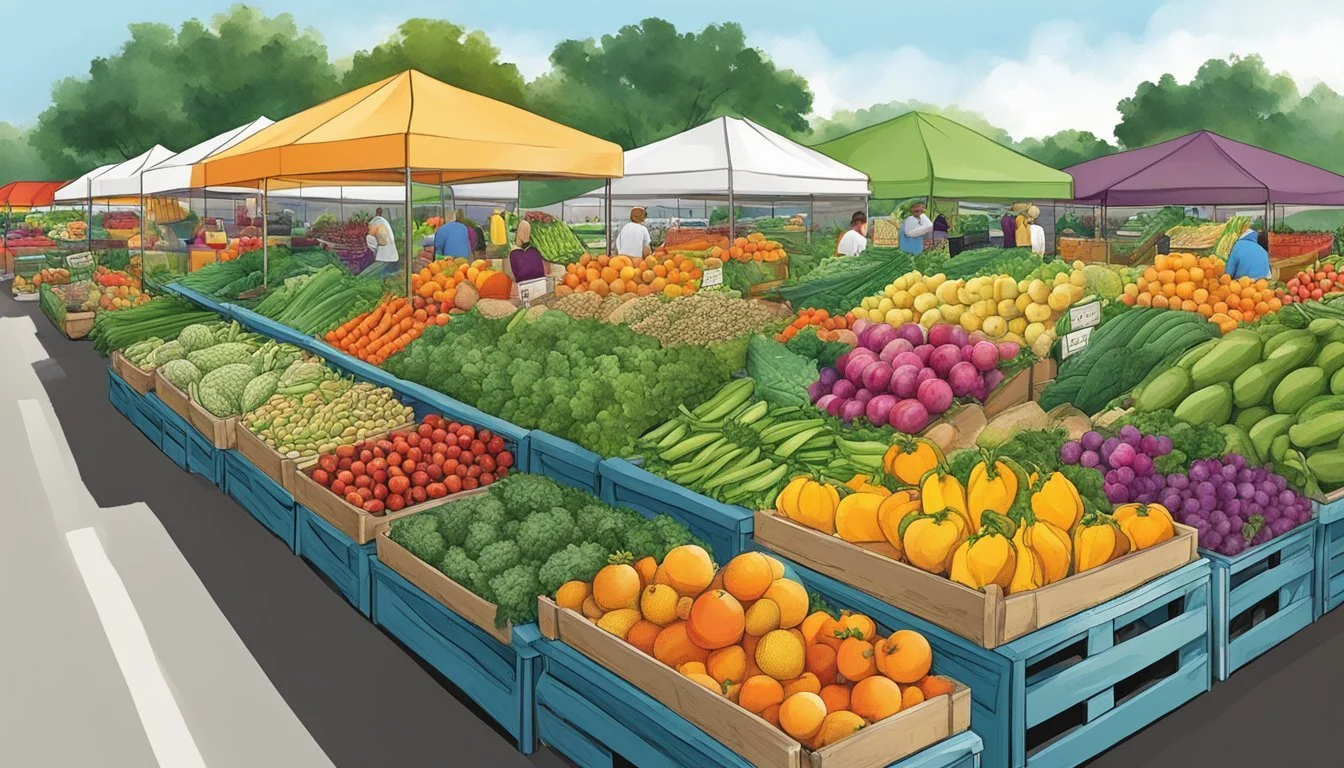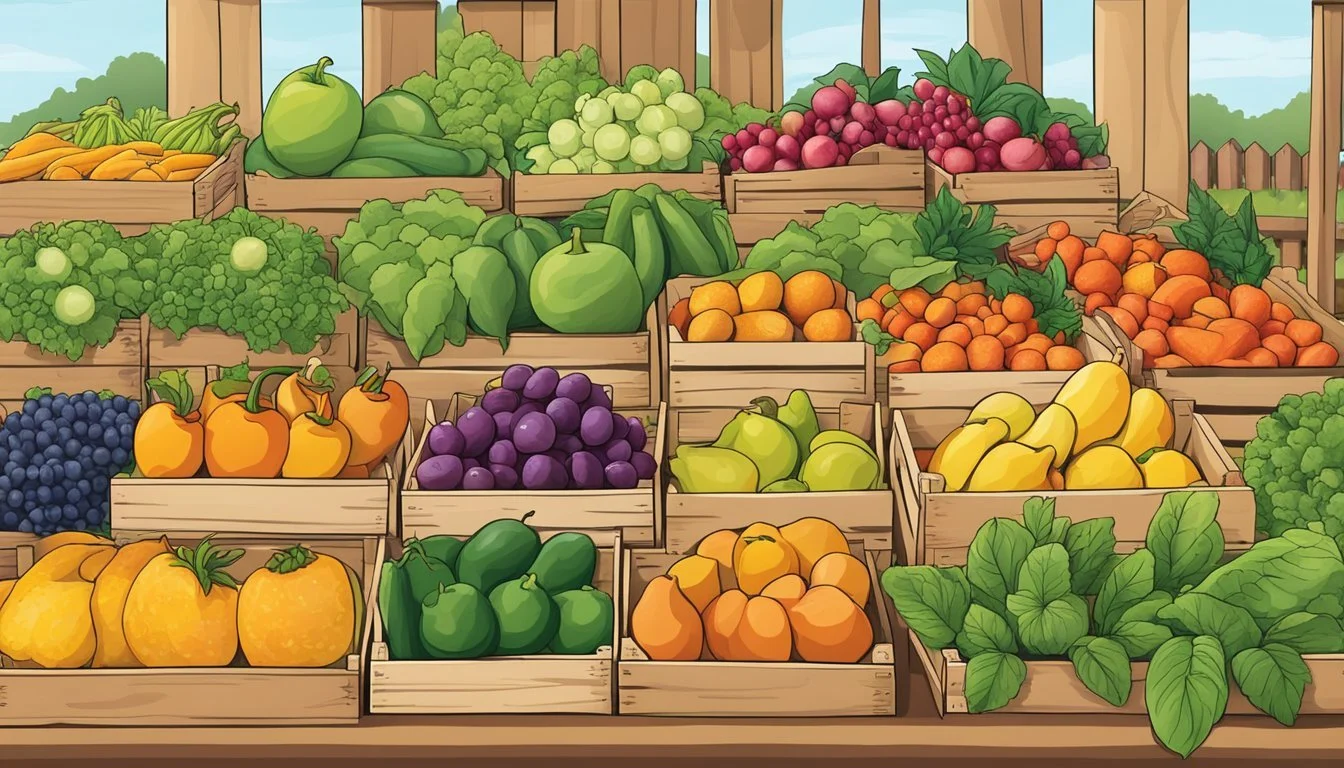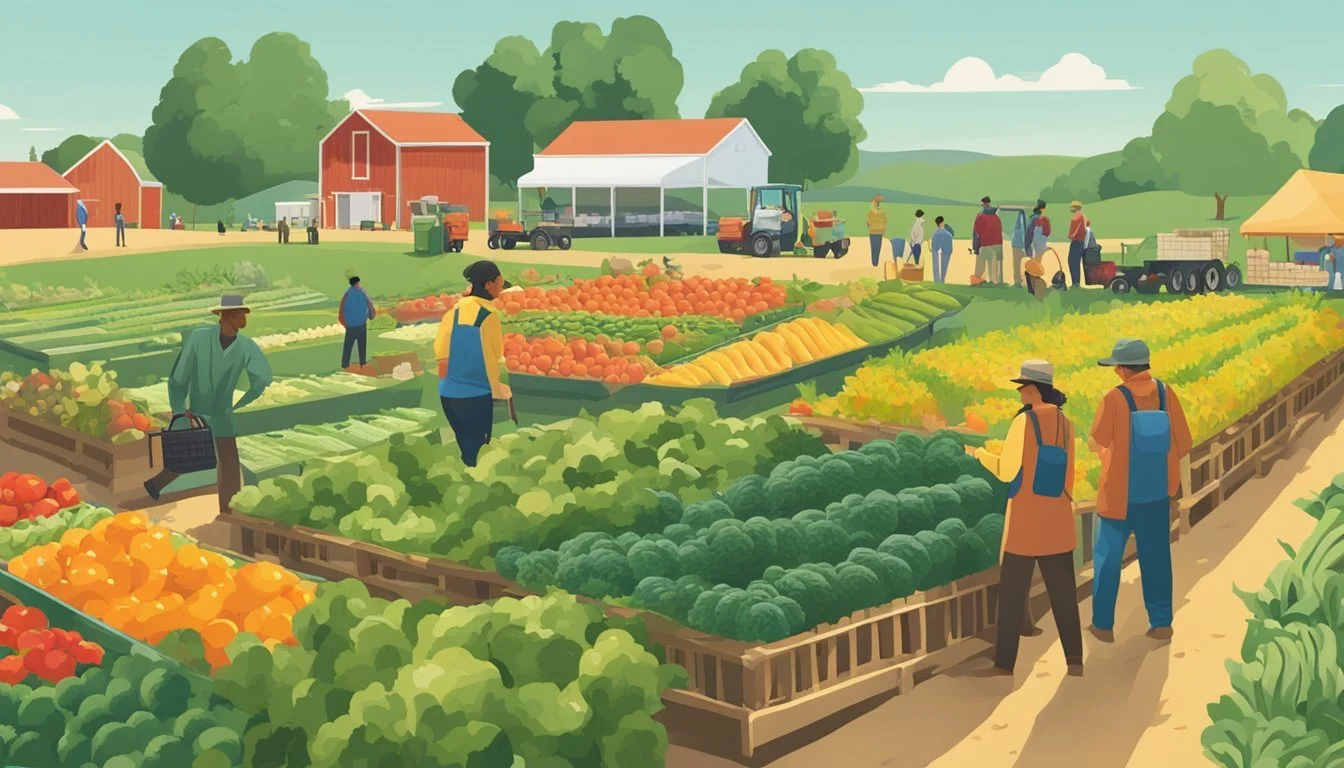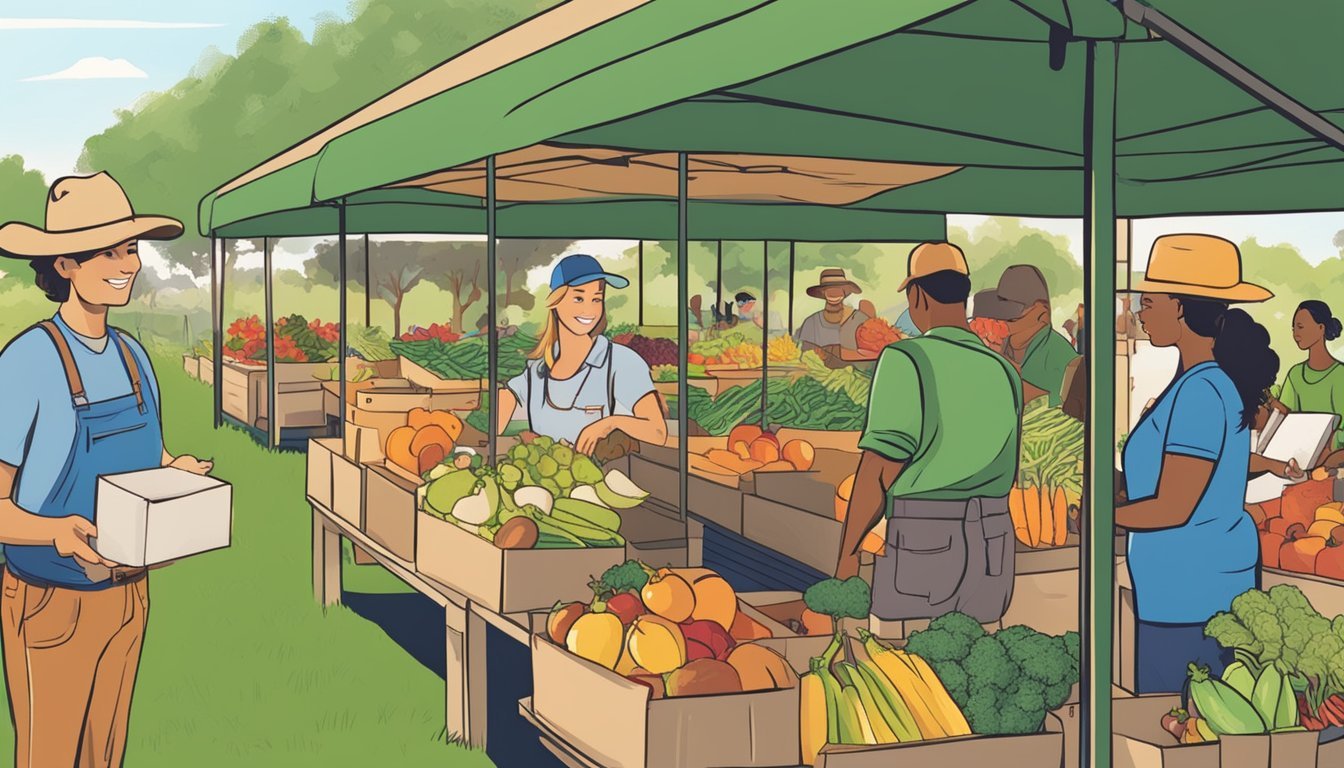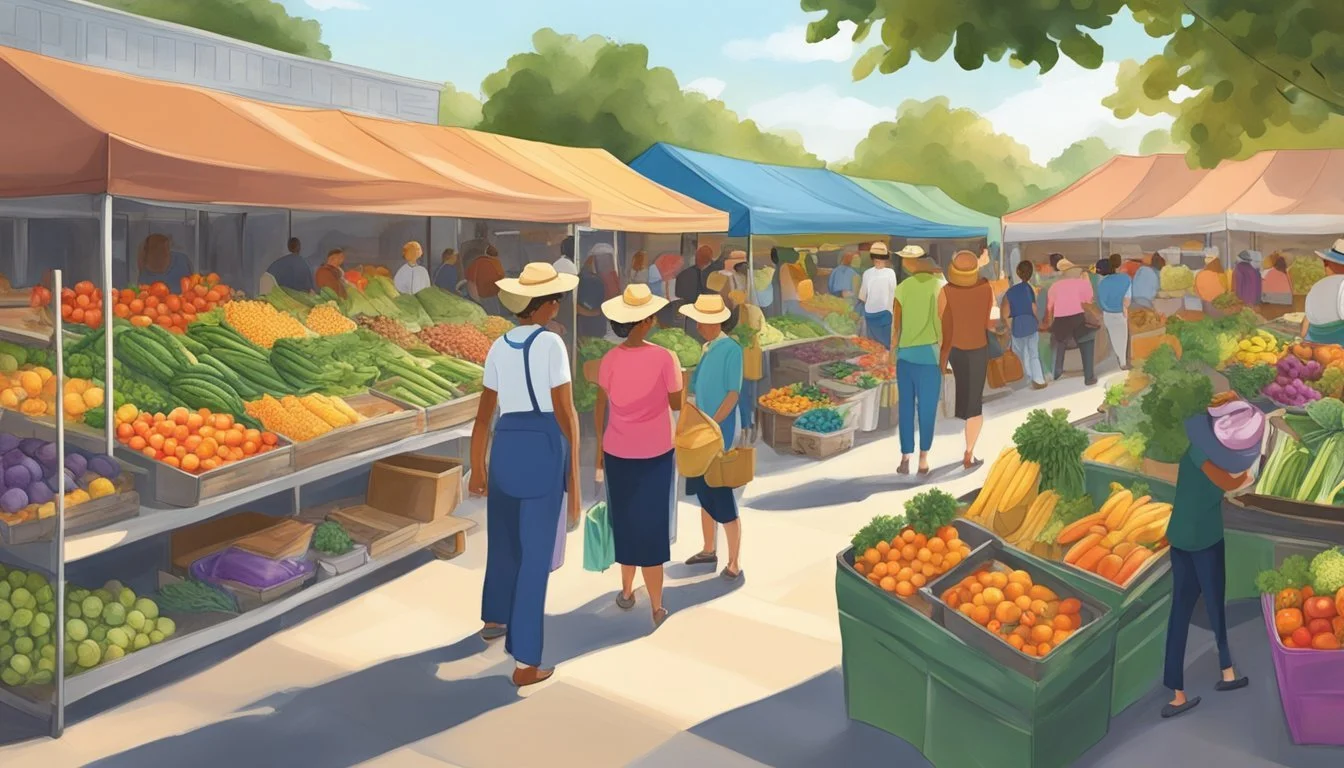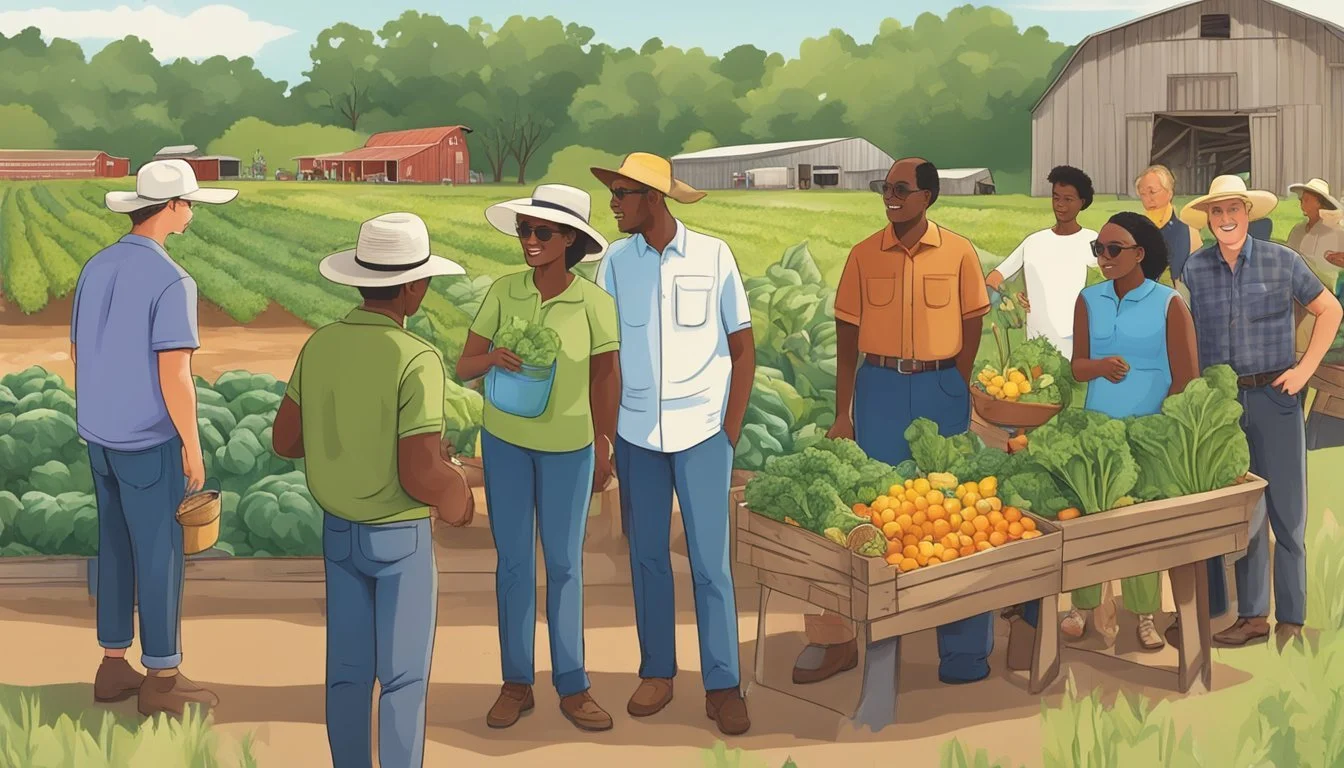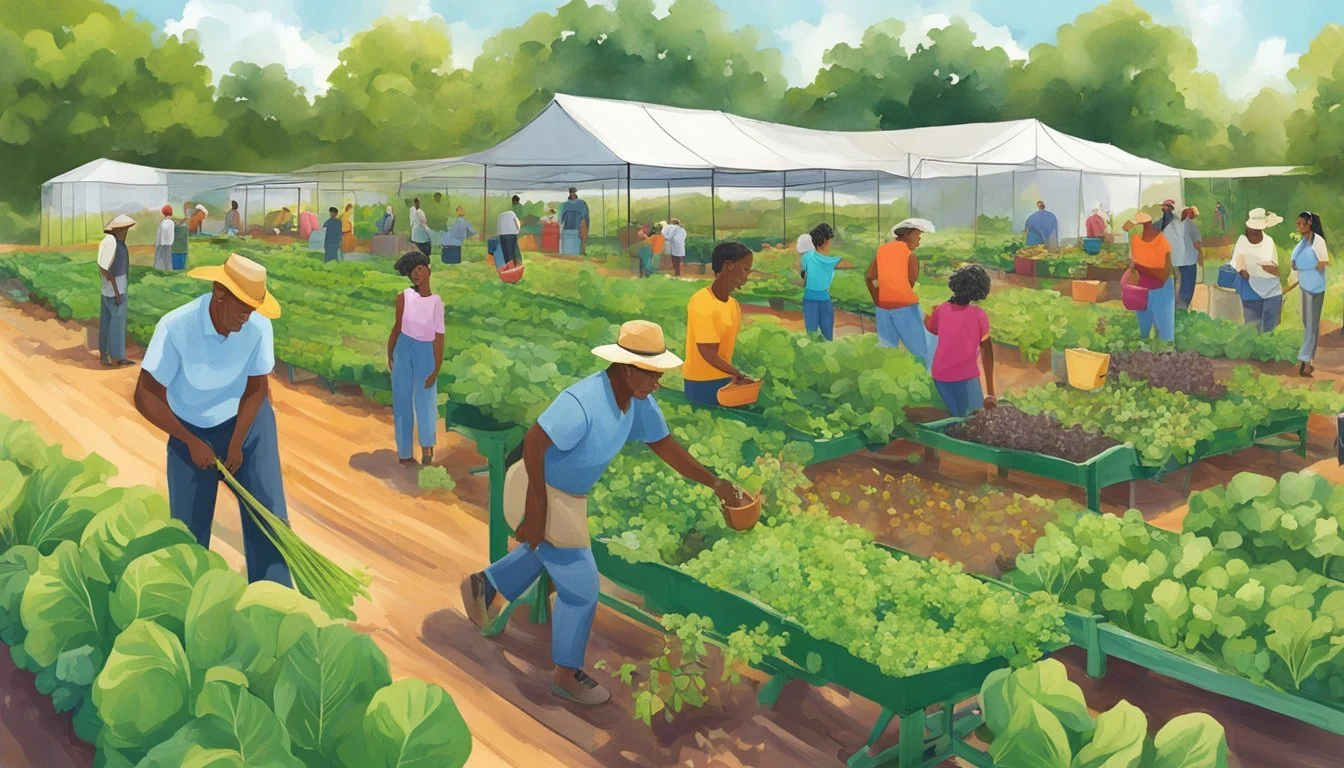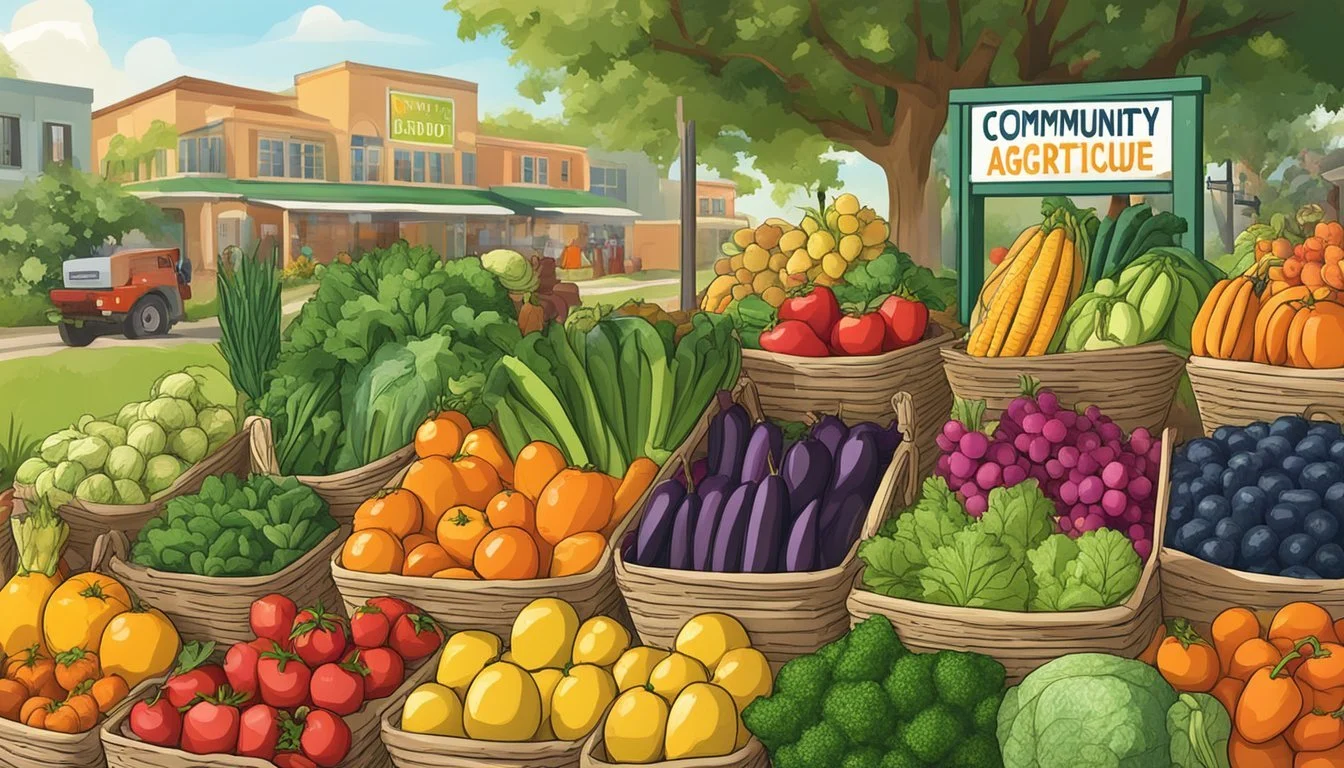Community Supported Agriculture (CSA) in Lakeland, FL
A Guide to Local Farm Partnerships
Community Supported Agriculture (CSA) has taken root in Lakeland, Florida, as a popular way for consumers to buy local, seasonal food directly from a farmer. This model of food distribution connects residents with area farmers, providing them with regular deliveries of freshly harvested produce. Typically, individuals who participate in CSA programs purchase a “share” from a local farm, and in return, they receive seasonal produce throughout the farming season.
In Lakeland, CSA programs often promote organic and sustainable farming practices, echoing a growing trend of environmental consciousness and support for local economies. LocalHarvest lists several CSA options in the Lakeland area, where community members can access fresh fruits and vegetables, as well as other farm products such as honey, jams, and jellies. These direct-from-farm purchases not only ensure food freshness but also enable consumers to contribute directly to the success of their local farmers.
The popularity of CSAs in Lakeland is also supported by various local markets and farm stands where residents can buy produce. Farmers markets like the Lakeland Downtown Farmers Curb Market offer another avenue for farmers to sell their goods while fostering a sense of community. Such markets and CSA subscriptions complement each other, providing diverse options for accessing healthy, locally-grown food.
Understanding CSA
Community Supported Agriculture (CSA) represents a model where consumers purchase subscriptions, or "shares," thus becoming stakeholders in a farm's operation and sharing in its risks and rewards.
History and Concept of CSA
The CSA concept originated in Japan in the 1960s, arising from consumers' desires to connect with their food sources and support local agriculture. It reached the United States in the 1980s and has since seen steady growth. The foundational principle is a partnership between farmers and community members, fostering local economy and food security.
CSA Business Model
CSAs operate on a subscription basis, with consumers pre-paying for a season’s worth of agricultural produce. This model provides the farm with upfront capital to manage the farm operation. Shares typically include a weekly or bi-weekly box of vegetables and may also feature other farm products. Consumers share in the farm's risk; in a weak harvest, shares may be smaller, reflecting the natural ebb and flow of agriculture. Conversely, a bountiful season leads to larger shares. Members may also contribute labor, taking an active role in the agricultural process.
Benefits of Joining a CSA
Joining a Community Supported Agriculture (CSA) program in Lakeland, Florida offers members the opportunity to engage directly with local food systems. Such an arrangement supports sustainability and community health.
Supporting Local Farmers
By participating in a CSA, members invest in local farmers, ensuring they receive fair compensation for their labor. This direct-to-consumer model bypasses the cost-adding middlemen of traditional food supply chains, enabling farmers to thrive even with the financial unpredictability of farming.
Direct support: CSA members' fees go straight to the farmers.
Stabilized income: Pre-season payments help farmers plan and stabilize their income.
Fresh and Organic Produce
CSA members enjoy access to fresh, seasonal produce that is often organic and pesticide-free. The emphasis is on quality and nutritional value, providing a tangible health benefit to consumers who wish to avoid conventional agricultural chemicals.
Seasonality: Produce picked at peak season ensures maximum flavor and freshness.
Health benefits: Pesticide-free and non-GMO produce contributes to a healthier diet.
Environmental Impact
CSAs inherently encourage environmentally friendly practices by reducing food miles and promoting organic farming techniques. These methods reduce chemical run-off, preserve local ecosystems, and contribute to a smaller carbon footprint.
Local environment: Reduced transportation conserves energy and reduces greenhouse gases.
Sustainability: Organic farming practices support long-term agricultural health by avoiding harmful pesticides.
CSA Offerings in Lakeland
In Lakeland, FL, the CSA model is embraced by a variety of farms, providing residents with fresh, locally-sourced produce and products. Members of the community can directly support local agriculture and receive a share of the harvest throughout the farming season.
Types of CSA Products
The CSAs in Lakeland offer an array of products that cater to diverse dietary needs and preferences. Subscribers to the programs can expect to receive:
Vegetables & Fruits: A variety of fresh, seasonal vegetables and fruits are grown and distributed by local CSA farms. These may include leafy greens, roots, berries, citrus fruits, and more, depending on the season.
Eggs & Meat: Participating farms often provide eggs from free-range chickens, and may also offer meats from animals raised on the farm.
Additional Products: Some CSAs go beyond produce and proteins, offering items such as honey, flowers, and home-made jams to accompany the weekly or bi-weekly shares.
Seasonal Availability
CSA shares in Lakeland, FL, are influenced heavily by the growing seasons and what is available at different times of the year. A brief overview of what members might expect includes:
Spring/Summer: This is the prime time for a variety of fruits, including berries and citrus, as well as vegetables like tomatoes, peppers, cucumbers, and leafy greens.
Fall/Winter: Root vegetables such as sweet potatoes and carrots thrive, along with cold-weather crops like broccoli and kale.
The CSA model in Lakeland ensures the community has access to fresh, seasonal produce throughout the year while also supporting local farmers and sustainable agriculture.
How to Choose a CSA
Choosing the right Community Supported Agriculture (CSA) program is critical for getting fresh, organic produce while supporting local farms. It involves understanding the types of shares offered, distribution methods, and the importance of researching the specific CSA farms in the Lakeland area.
Researching CSA Farms
When selecting a CSA farm, one should visit platforms like LocalHarvest to find detailed information about farms near Lakeland, FL. They can look into Bilbrey Family Farm in Auburndale, Florida, for instance, which follows the USDA's National Organic Program rules and opens its Farm Stand to the public.
Criteria to Consider:
Farm's reputation and reviews
Food production methods (organic, conventional)
Farm's environmental and social impact
Considering Share Options
CSA share options typically range from full shares to half or smaller shares, suitable for different household sizes. Potential members should consider:
Type of Share Options:
Full Shares
Half Shares
Customizable Shares
One needs to assess their household’s food consumption to determine the most suitable share size and whether they prefer a standard farmer-choice box or a customizable share.
Evaluating Pickup or Delivery
Convenience is key in maintaining a long-term relationship with a CSA. Members should consider the CSA's pick-up locations or delivery options.
Convenience Factors:
Proximity to pick-up locations
Availability and flexibility of delivery services
In Lakeland, the choice of a CSA could hinge on the ease of distribution—whether that involves a local pick-up point or direct delivery services. Consumers should verify these details prior to committing to a CSA program.
Membership and Subscription Process
When a customer is interested in joining a Community Supported Agriculture (CSA) program in Lakeland, Florida, they typically go through a sign-up process and select a payment plan. Each CSA farm may have its unique procedure, but the overarching aim is to provide consumers with fresh, local produce on a regular basis.
Sign-Up Procedures
Customers usually begin their CSA membership by selecting a farm of their choice and completing a sign-up form. The form may require personal information, preferences for produce, and pick-up location details. After submission, the customer will receive a confirmation and further instructions:
Complete Sign-Up Form: Fill in required fields for personal details and preferences.
Pick-Up Locations: Choose from a list provided by the CSA farm.
Membership Confirmation: Await email or phone confirmation of membership status.
Payment Plans
Payment for CSA shares is typically requested at the start of the season, although some farms may offer installment plans. CSA farms in Lakeland cater to their customer base through flexible payment options:
Full Payment Upfront: Customer pays entire cost at the beginning of the subscription period.
Installment Payments: Some farms may allow payment in installments, often monthly.
Payment Methods: Farms usually accept various payment methods, including cash, checks, and sometimes credit cards.
It is important for consumers to review the CSA's payment terms and conditions to understand the commitment and to select a payment plan that best suits their financial needs.
Engaging with Your CSA Community
Participating in a CSA in Lakeland, FL offers community members an opportunity to engage deeply with the food they eat and the people who grow it. Members contribute to the farming process and share in both the risks and rewards of food production.
Member Responsibilities
Members of a Lakeland CSA are integral to the farm's operation. They typically contribute upfront, which helps cover the initial production costs for the season. Some CSAs allow members to pay lower fees by contributing labor, like assisting on special workdays or helping with distribution. These contributions sustain the CSA model and foster a sense of ownership and connection to the land and the food produced.
Mutual Support and Education
Mutual support is key in the CSA community. Members often engage in educational experiences, learning directly from their farmers about organic growing methods and seasonal eating. CSAs may provide members with tips on how to prepare and store produce, ensuring they make the most of their shares. The exchange of knowledge proves invaluable, strengthening the bond between members and the farm.
Risks and Considerations
In Lakeland, FL, participants in Community Supported Agriculture must consider various factors that could impact their agricultural investment. Both weather dependencies and crop variety play pivotal roles in determining the success of a CSA season.
Weather Dependencies
Shared Risk: Members of a CSA inherently share the risks that come with farming—particularly those related to weather. For growers in Lakeland, the growing season can be influenced by unpredictable weather patterns, ranging from droughts to excessive rainfall, which can severely affect crop yields. Consequently, this shared risk emphasizes the importance of community support, as consumers are directly affected by these weather challenges alongside the farmer.
Impact on Production: Weather variances directly correlate with the consistency and volume of the harvest. While growers endeavor to mitigate risks with various agricultural practices, the uncertainty of weather remains a significant factor in CSA sustainability.
Crop Variety
Diversification: To counteract the uncertainties of weather and other risks, growers often cultivate a variety of crops. This approach not only enriches the CSA offerings but also serves as a strategic measure; if one crop fails, others may thrive, providing members with a continued supply of produce throughout the season.
Seasonal Fluctuations: The types of crops that can be grown in any given season are subject to Lakeland's climate and soil conditions. Growers make informed decisions about which crops to include in the CSA based on these conditions, although the success rate of these crops can never be fully guaranteed due to weather dependencies and other unforeseen challenges.
Local Advocacy and Stewardship
Community Supported Agriculture (CSA) in Lakeland, FL, demonstrates strong local advocacy and a commitment to land and resource stewardship. This movement is rooted firmly in the principles of sustainability and community engagement, ensuring that agriculture supports both the environment and those who live within it.
Promoting Local Agriculture
CSAs empower farmers by connecting them directly with consumers, fostering an environment where local agriculture flourishes. In Lakeland, the effort to bring fresh, organic produce to the community is reinforced by education on the benefits of supporting local farms. Regular farm stands and farmers markets act as pivotal venues for such outreach efforts, illustrating the dual benefits: consumers receive high-quality produce while contributing to the local economy.
Education: Workshops and CSA membership drives.
Marketing: Utilizing social media to highlight specific local farms.
Community Involvement: Engaging schools and businesses in farm-to-table initiatives.
Land and Resource Stewardship
CSAs in Lakeland not only advance local farming but also prioritize the stewardship of land and natural resources. Farms utilize sustainable practices that respect the ecosystem and conserve water, soil fertility, and biodiversity. This reflects a pledge to land stewardship that is both ethical and practical. By maintaining the health of the land, CSAs ensure it remains productive and supportive of natural habitats for generations to come.
Sustainable Practices: Crop rotation, organic pest management, water conservation techniques.
Education: Informing members about the impact of their choices on land conservation.
Resources and Additional Information
For those seeking in-depth knowledge and specifics on Community Supported Agriculture in Lakeland, FL, an array of resources and contacts are available. These can provide educational insights, direct lines of communication, and information on local agricultural events.
Educational Materials
The University of Florida offers comprehensive guides and materials for individuals interested in learning about CSA models and operations. These resources provide insights on member responsibilities, payment methods, and the spectrum of CSA structures. For further reading, the university's extension service website is an invaluable resource.
USDA: The United States Department of Agriculture website outlines national CSA guidelines and offers a variety of educational resources concerning agricultural practices.
Contact Information
Direct correspondence is often the best approach to gain specific information or clarify inquiries.
Florida Department of Agriculture & Consumer Services:
Phone: Contact numbers are available through their official website.
Email: A 'Contact Us' form is provided for easy written communication with department representatives.
Local Events and Farmer's Markets
Lakeland has a vibrant local food scene, with farmer's markets and events that are perfect for networking and finding CSA opportunities.
Farmers Market: Weekly or bi-weekly markets can be an excellent place to meet local farmers and inquire about CSA shares.
LocalHarvest: Lists CSAs and provides information on local food events. Utilizing LocalHarvest's directory can connect consumers to Lakeland's nearest CSA options.


